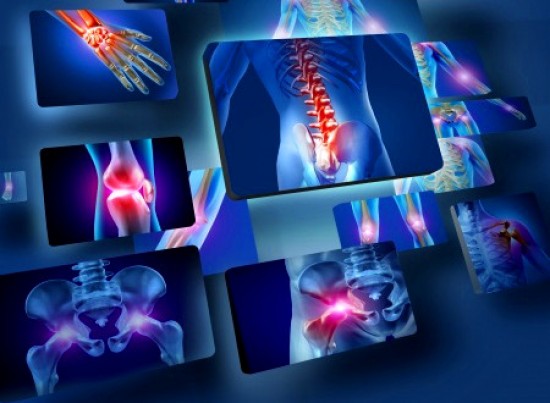Your joints connect your bones and provide support while your body is in motion. If you've had damage to your joints, you can experience chronic excruciating pain.
Joint pain can happen for many reasons such as sprains, osteoarthritis, rheumatoid arthritis or as a result of an injury.
What's the most common reason for joint pain?
Typically, the most common reason you experience joint pain in your knees, hips, hands, and ankles is from overuse. This can be from excess activity that your body is not used to.
You may experience pain in your joint during certain activities, like weight-bearing exercises or just from walking. As soon as you stop these activities, your joints may not ache as much. However, if you continue to ignore the aches during and after activities, the damage is still done. If the damage is bad enough, it can be irreversible, also known as arthritis.
Arthritis occurs when one or more of your joints are inflamed.
When is it time to seek medical attention?
First, you must specifically note what pains you are feeling, where you are feeling them and when you are feeling the pain. If you've had the aches and pains for several weeks or months, it would be wise not to hesitate any longer to see your physician. Your physician will evaluate your pain, and depending on how long you've had damage, may recommend different treatment options.
The most common treatments you can do on your own are strengthening the surrounding muscles to help the joint bear the force more easily. Another common treatment is weight loss. If you're overweight -- even just a little overweight -- you are putting stress on your joints.
Can you take medicine to help ease the pain?
The best medicine to take are NSAIDS (Nonsteriodal Anti-inflammatory Drugs), such as Aspirin, Ibuprofen and naproxen.
What else can you be doing to manage your pain levels?
Orthopedic surgeon and adult joint replacement expert with Houston Methodist, Dr. Stephen Incavo, joins Melanie Cole, MS, to discuss the most common reasons you may experience joint pain and the best treatment options available.
Is Chronic Joint Pain Slowing You Down?
Joint pain can happen for several reasons and can range from mild to completely unbearable, leaving you unable to perform simple daily activities.
Additional Info
- Segment Number: 4
- Audio File: staying_well/1419sw1d.mp3
- Featured Speaker: Stephen Incavo, MD
- Organization: Houston Methodist Leading Medicine
- Guest Twitter Account: @MethodistHosp
-
Guest Bio:
 Dr. Stephen Incavo is an orthopedic surgeon and adult joint replacement expert with Houston Methodist.
Dr. Stephen Incavo is an orthopedic surgeon and adult joint replacement expert with Houston Methodist.
He is a professor of clinical orthopedic surgery at Weill Cornell College of Medicine and the program director of Houston Methodist's adult hip and knee reconstruction surgery fellowship. - Length (mins): 10
- Waiver Received: No
- Host: Melanie Cole, MS
Published in
Staying Well
Tagged under
